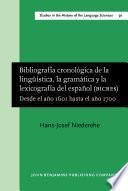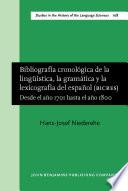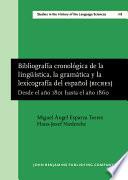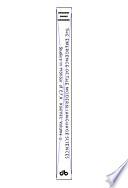Bibliografía cronológica de la lingüística, la gramática y la lexicografía del español (BICRES II)

Since the publication of the still very valuable Biblioteca histórica de la filología by Cipriano Muñoz y Manzano, conde de la Viñaza, (Madrid, 1893), our knowledge of the history of the study of the Spanish language has grown considerably. It has been the purpose of BICRES I (from the beginnings to 1600), published in 1994 in the same series, to bring already available bibliographical information together with the more recent research findings, scattered in many places, books and articles and published during the past one hundred years. Now, the second volume, covering the years from...


